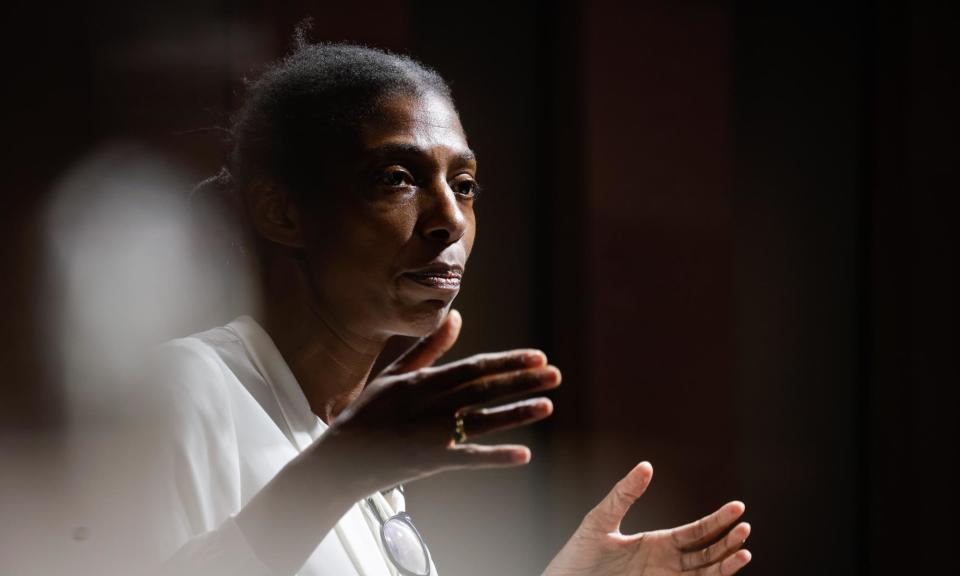John Lewis is ‘back on track’, says outgoing chair Sharon White

The outgoing chair of John Lewis has insisted that the retail group is “back on track” and “more fit for the future” with an improving financial position enabling it to spend money refurbishing Waitrose supermarkets and opening convenience stores.
Sharon White, who will retire as chair of the John Lewis Partnership in September, said the upmarket Waitrose brand was “underrepresented in convenience” as it sought new avenues of growth.
John Lewis, which owns Waitrose and the eponymous department store chain, has endured several challenging years, as the upheaval of the pandemic was followed by the cost of living crisis. At the start of this year, the Guardian reported that it was considering cutting as many as 11,000 jobs over the next five years.
Related: John Lewis owner cut 3,500 jobs last year yet hired chief on £1.2m pay deal
In March the group reported a return to profit, banking pre-tax profits of £56m in the year to 27 January, compared with a £234m loss the previous year. However. the staff-owned retailer, which employs about 74,000 staff, who it calls “partners”, did not pay its staff an annual bonus for the third time in four years.
At that time, White said it was “entering a year of significant investment” and planning to spend £542m – up 70% on a year before – adding that it was “on track” to hit its target of making £400m in profit by 2028.
The group’s financial difficulties meant Waitrose had not been able to invest as much in its stores as its rivals, White said. But progress made righting the ship meant it had now had the cash to do so.
“We’ve started to think about how we get the right balance between service and productivity,” she said, outlining a plan to refurbish 80 stores over the next three years. Acknowledging that a growing number of shoppers were expressing dismay over the proliferation of self-service checkouts, she promised: “You won’t see Waitrose stores completely stripped of partners and relying on self-checkout.”
“The big thing is, we’ve now got the cash to invest in the future of the business,” she told the Telegraph. “Across the two brands last year we generated something like £210m more, which means we’ve got the cash to invest into growth this year.”
With a small chain of Little Waitrose convenience stores under its belt, the retailer has had to strike deals with the likes of UberEats and Deliveroo to meet the growth in demand for small, quick shops.
White, who will be replaced by the former UK boss of Tesco, Jason Tarry, said that taking a bigger slice of the convenience market was a “top” priority. “I think having a bigger presence for Waitrose locally and with more local ranges is a massive opportunity for us,” she said.

 Yahoo Finance
Yahoo Finance 